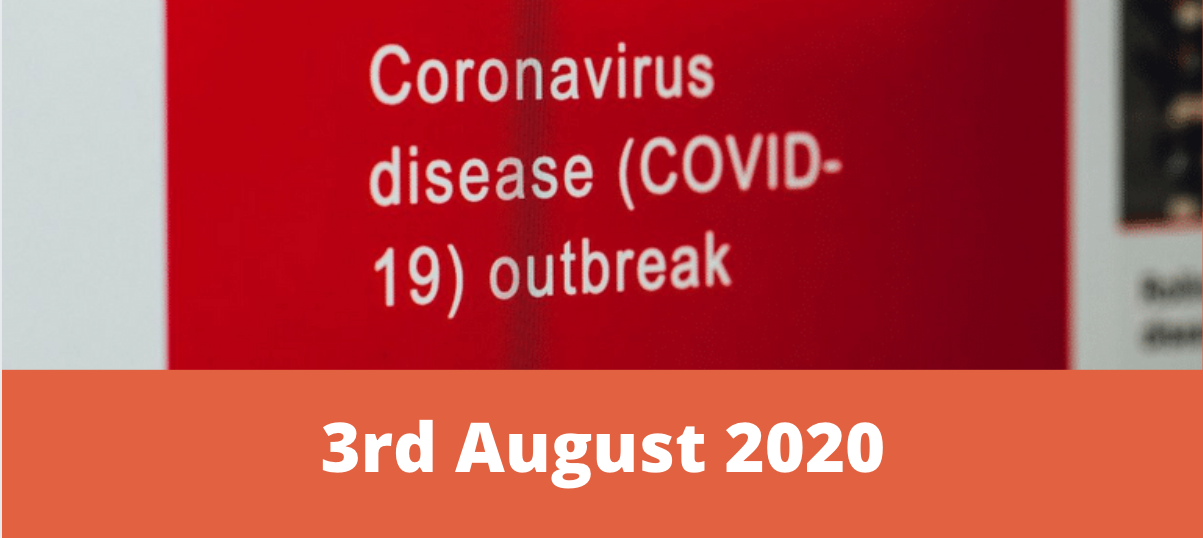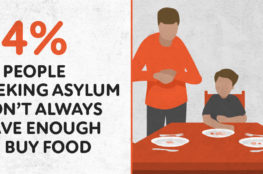Our weekly summary of ongoing advocacy initiatives, interesting surveys and research, government developments and useful resources. Contact us if you’d like to get this update directly into your inbox!
1. Ongoing advocacy initiatives
New Lift the Ban report launched
The Lift the Ban coalition has released its new report. Lift The Ban: why giving people seeking asylum the right to work is common sense includes:
- Updated analysis of the potential benefit to the UK economy of enacting this policy, totalling an estimated £97.8m per year;
- Results of a skills audit with people seeking asylum conducted in May of this year, showing that:
- 45% would have been classed as a critical worker during Covid-19 based on their previous work experience;
- 1 in 7 had a health or social care background;
- 77% had already or would like to volunteer for the NHS;
- New country comparisons showing how the UK’s policy leaves it as an outlier in the international community, with information on how the right to work operates in countries including Australia, Sweden and Ireland.
The report has received substantial media coverage including in the Independent, City AM, LBC, Channel 5 News and on the Conservative Home, CapX and Politics.co.uk websites.
The campaign has produced a range of resources for coalition members to share on social media with the hashtag #LiftTheBan; while GMIAU have published a blog featuring the story of a doctor who has been unable to work during the Covid-19 pandemic as she waits for a decision on her asylum claim.
If you are not currently a member of the Lift the Ban coalition and would like to get involved, please contact [email protected].
DOTW letter to UK Government on translating Covid-19 guidance
Preventing destitution
Asylum Matters and NACCOM are continuing to work together to call for a stay on evictions into homelessness from asylum accommodation for at least the next 12 months or longer while Covid-19 poses a public health risk.
We would encourage local partners to share the Everyone Out policy paper with your local authority, asking them to write to the Home Office to back the calls to protect everyone from homelessness, destitution and Covid-19.
If you would like to discuss this campaign further and how you can be involved, please contact us at [email protected].
Step Up Migrant Women petition
The 30,000-strong Step Up Migrant Women Petition was delivered to the Home Office on 23 July, backed by more than 40 high profile supporters including Dua Lipa, Dame Judi Dench and Gillian Anderson.
Earlier in July MPs voted against vital amendments to give migrant women support in the Domestic Abuse Bill. The petitioners are asking the UK Government to accept these amendments when the legislation goes to the Lords in Autumn. The petition was covered in media outlets including the Telegraph and Vogue; and you can read more about the brilliant work of the Step Up Migrant Women coalition on their website.
Everyone Home campaign in Scotland
2. Research and Reports
Groundswell research on the effects of Covid-19 on people with NRPF experiencing homelessness
Groundswell are currently undertaking research to understand the impacts of Covid-19 on the lives of people experiencing homelessness, and are particularly interested in hearing directly from people with no recourse to public funds (NRPF) who are homeless or living in precarious situations, such as sofa surfing.
The project aims to directly include the voices of people experiencing homelessness in the national and local decision-making processes: through telephone interviews, text messages and text and audio reports from ‘mobile reporters’. If you are and have an NRPF condition, you can have your say confidentially and anonymously, by texting 07476552438. The costs of texts will be reimbursed. More information for participants can be viewed here.
Channel 4 report on NRPF conditions
Research on impact of Covid-19 on families on low incomes
The Universities of York and Birmingham have teamed up with the Child Poverty Action Group to launch a research project called Covid Realities.
They are looking to work with parents and carers with children under 19, living on a low income, to document the everyday realities of life at this particularly challenging time. Parents and carers can anonymously share their experiences in an online diary, take part in online activities, and participate in virtual workshops.
The research aims to gather evidence of the challenges faced, the impact of Covid-19 on families, and help policymakers make better informed decisions. There’s more information available to potential participants about how to get involved.
Briefing on the impact of Covid on NRPF
Refugee women mental health and wellbeing measure
The University of Liverpool is working to develop a mental health and wellbeing measure specific to refugee women residing in the UK. They are currently piloting this measure by inviting refugee women in the UK who speak English to fill in an online survey about their wellbeing. Participants should be over 18, and have leave to remain or indefinite leave to remain. The survey takes about 30 minutes to complete.
3. Home Office and Government Developments
Home Secretary’s statement on Windrush Lessons Learned Review
Ahead of a debate in the House of Commons on 21 July, Priti Patel made a statement on the Windrush Lessons Learned review, following the Home Office’s acceptance of its recommendations.
The Home Secretary said that she was reviewing every aspect of how the Home Office operates, and “the way it views and treats all parts of the communities it serves”. She pledged to hold reconciliation events with those affected by the Windrush scandal; introduce mandatory training for staff on the history of migration and race in the UK; and introduce a process “to ensure that all new policies are developed in an inclusive way”. She stated that the Home Office was overhauling the way in which it engages with stakeholders and said that “putting people first will be built into the reforms we make’.
Wendy Williams, who carried out the review, will review the progress of the Home Office in relation to her recommendations in September 2021.
Home Affairs Select Committee report on asylum accommodation
- ensure room sharing across the whole estate is phased out.
- measures to enable greater social distancing and effective hygiene practices.
- ensure all asylum seekers receive £10 a week to top up their phone credit.
- reconsider the provision of medical services, subsistence payments and children’s educational support in initial accommodation.
- check regularly with service users, and with wider stakeholders, to ensure that they are receiving up-to-date and timely Covid-19 guidance.
- subsistence allowance should be provided to any individual whose entitlement to section 95 support has been accepted, whether or not they are then immediately able to move into dispersal accommodation.
- follow MHCLG’s lead and agree jointly with local authorities, devolved nations and third sector partners a sensible and fair extension to the current measures in place for asylum seekers that reduces the public health risk for them and for the local community.
- publish a full, public, Covid-19 strategy addressing concerns outlined in the report and conduct a full review of its management of Covid-19 impacts on asylum accommodation and immigration detention.
You can read the full report and background on the Committee inquiry page and read coverage of the findings on PoliticsHome.
Changes to asylum interviews and reporting arrangements
4. Resources and what we’ve been reading …
A guide to socially distanced hearings
Covid-19 and mental health
Guidance on privacy settings
Media coverage for #SistersNotStrangers
5. New Funding
Lloyds Bank Foundation Covid Recovery Fund
New JRCT funding programme
The Joseph Rowntree Charitable Trust (JRCT) has launched the latest phase of its funding programme to support organisations in light of the Covid-19 crisis – funding which specifically responds to the dual harms of the pandemic and systemic racism, given people from ethnic minorities have been disproportionately impacted by coronavirus because of inequality and discrimination.
Applications for the funding are now open, and will close on 24 August.
Covid-19 Torture Survivor Emergency Relief Fund
Freedom From Torture is inviting small community-based organisations supporting survivors of torture during the Covid-19 pandemic to apply for a one-off small grant of between £200 and £2000 from its Covid-19 Torture Survivor Emergency Relief Fund. Grants should be used to provide small emergency payments to survivors of torture so that they can buy food, clothing or other essential items.
There is no closing date for this fund; once all of the available money has been granted, the fund will close to new applications.




